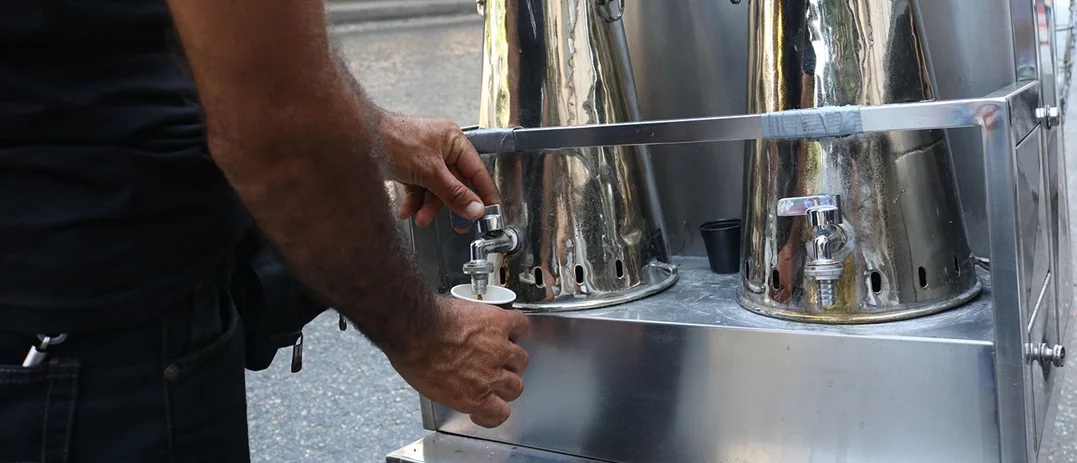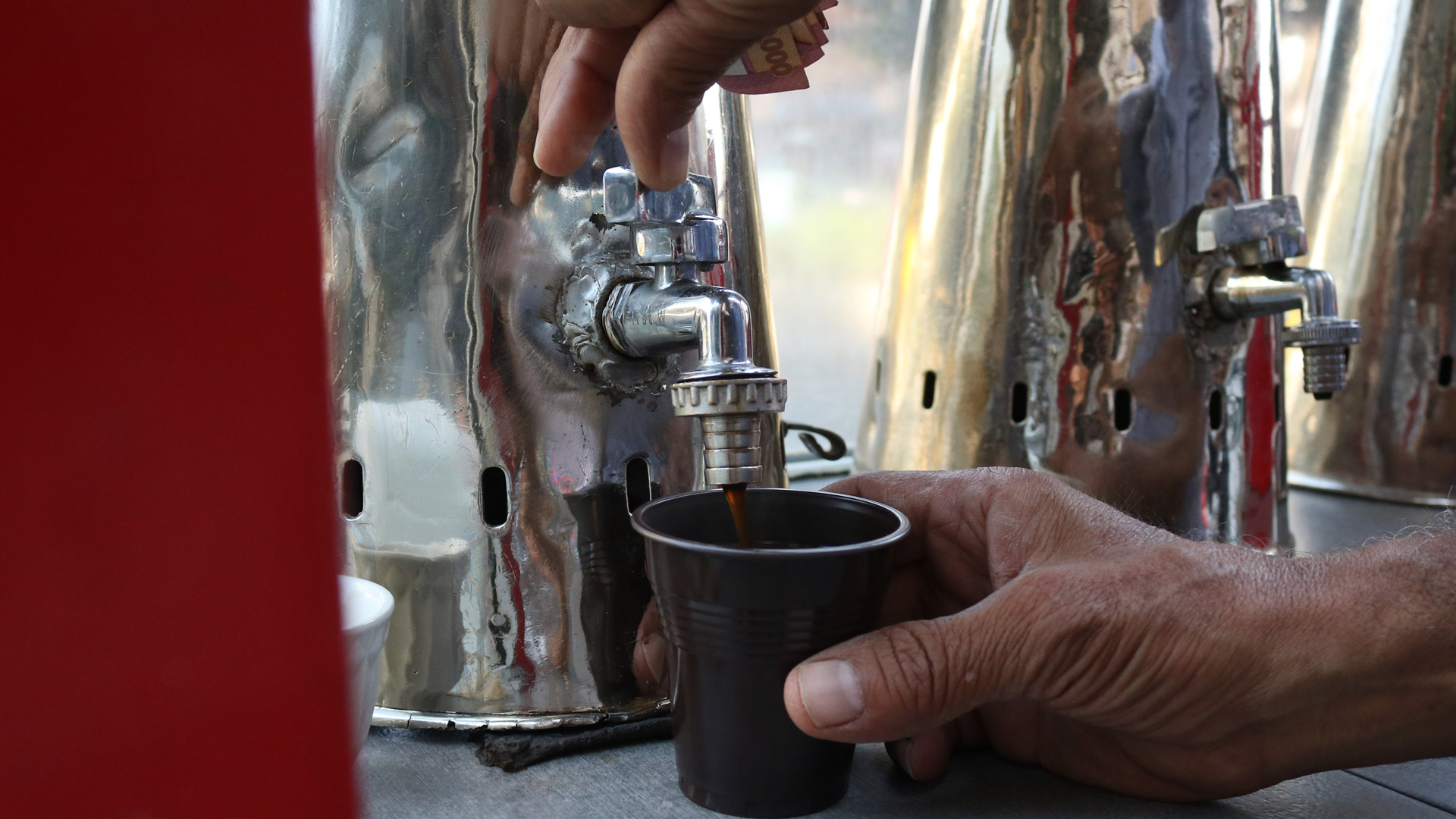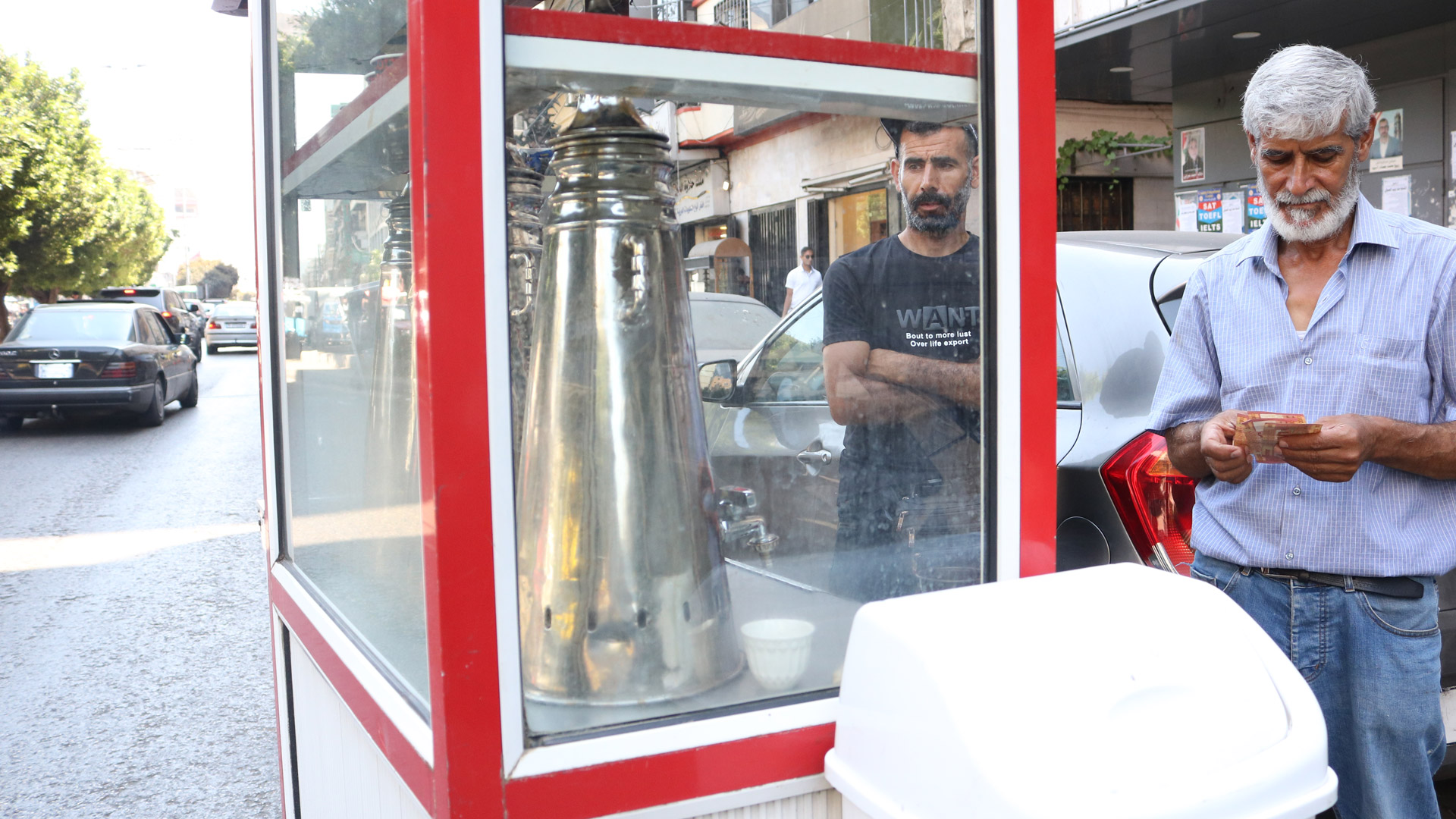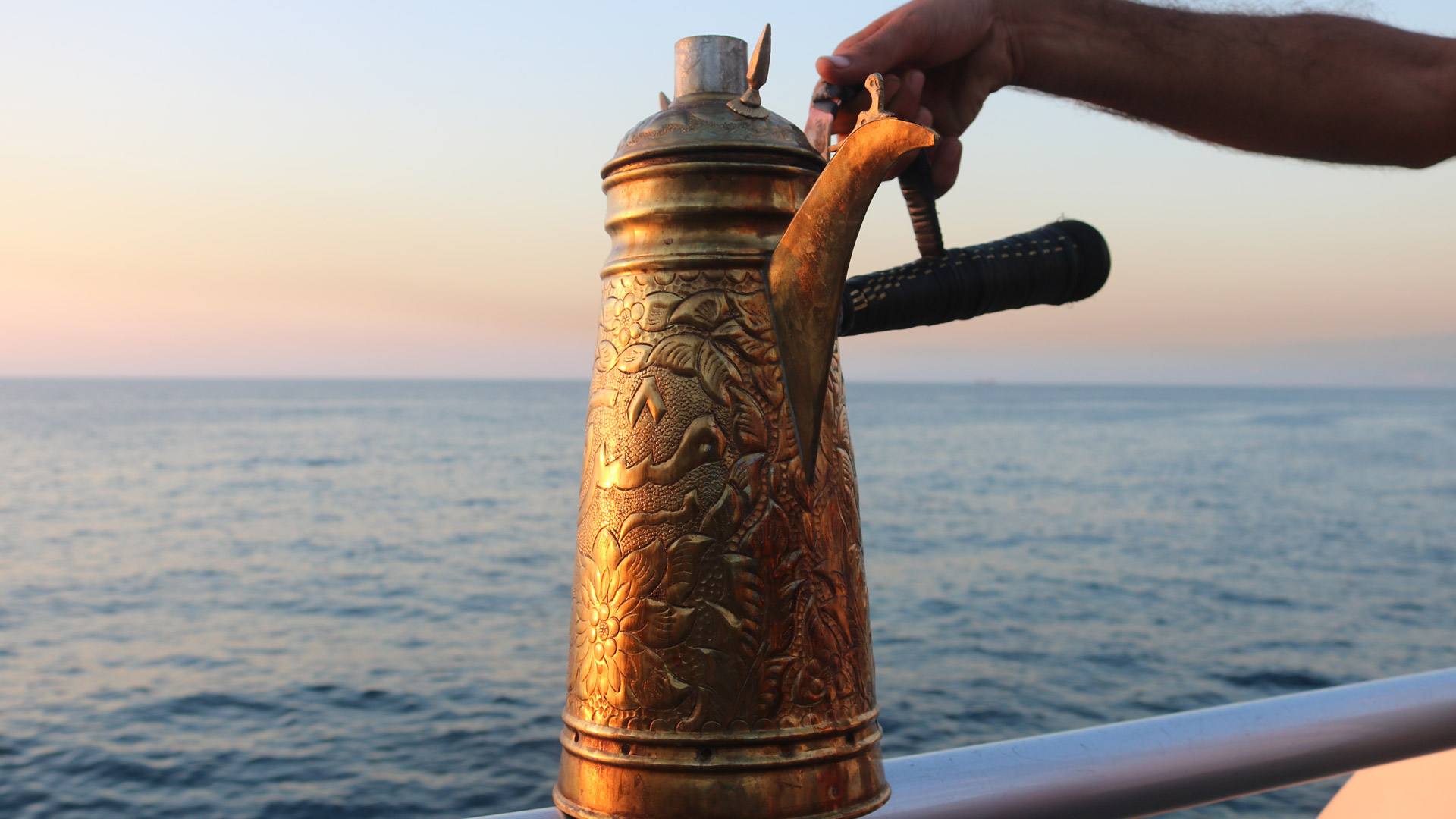Bitter, boiling, belonging
Bitter, boiling, belonging


The scent arrives before the man does.
Bitter and smoky, it trails down the Beirut corniche, winding between joggers, families and lovers watching the sea. Abu Youssef is not a barista. He doesn’t offer oat milk or foam art. He carries a brass rakweh tank on his back, its small charcoal chamber glowing red to keep the brew hot. He’s been doing this for a decade.
“This Rakweh tank is part of the Lebanese identity,” he says. “Yellow brass. Charcoal. No gas, no stainless or aluminum. This is how people used to cook, and it’s how I make my coffee still.”
They call it “Msabat,” a traditional Lebanese brew, thick and bitter, stored in those tall, cylindrical urns that look more like relics of Lebanon’s golden age than merchandise. You see them in Tripoli too — Near Azmi Street, down to Tal, across the tight arteries of the old souks. Sometimes two brothers walk the same path, each with a tank and a thermos, trying to keep something alive.
“This isn’t a business you pass down [through generations],” Abdel Karim, in Tripoli, said plainly. “It’s hard. It doesn’t bring much. But it’s part of who we are.” His brother, Abu Ezzo, started in 1981 when his salary couldn’t feed his family. “I don’t think the cafés are our competition,” he shrugs. “The customers are different. They know where to find us.”
 Photo: Rayanne Tawil, The Beiruter
Photo: Rayanne Tawil, The Beiruter
Msabat vs. mocha
In a city with a coffee shop that sells vanilla latte on every third block, it’s a strange thing to watch people line up for a hot shot in a plastic cup. It’s not the cheaper price, although it helps. Msabat sells for 20,000 to 100,000 LBP ($0.22 to $1.11), depending on size and area. It’s not the caffeine either. It’s something else. Something … slower, says Anna Ingabire, an urban researcher and academic who spent years researching Beirut’s café culture. She calls it “a democratic coffee stop.”
Msabat is the original coffee. Bitter, simple, Lebanese. Cafés give you all kinds; but this, this is ours.
“These peddlers claim space,” she says. “They make a corner their own. You see them on the corniche or in the souks, and it’s not just about selling coffee. It’s about turning public space into something local, intimate, human.”
She describes the coffee peddler as a quiet act of survival, an informal economy made visible where it’s a low-cost business, quick cash, and deeply rooted in the community. In this broken economy, they are the ones filling the cracks, she explains.
And yet, they’re also nostalgia vendors, sellers of memory. “For many, it’s not just about the coffee,” she says. “It’s about that familiar face. That pause in the day. That feeling of continuity when the rest of the city feels like it’s slipping away.”
 Photo: Rayanne Tawil, The Beiruter
Photo: Rayanne Tawil, The Beiruter
A cup at the end of the world
Back in Beirut, Abu Youssef times his arrival with the setting sun. “It’s the perfect time for Msabat,” he smiles. “After a heavy lunch, after a walk by the sea.”
His customers vary. Young people grab a cup on their way home. But it’s the older men, the ones in folding chairs, playing tawlet, arguing over news headlines, who search him out.
“Msabat is the original coffee,” he insists. “The bitter kind. No sugar, unless you add it after. Cafés today give you all kinds, but this, this is ours.”
Ingabire sees it in the same way.“It’s a ritual. A small, grounding one. That moment of recognition with the peddler? It creates a little community. It makes you belong”, she pointed out.
Even younger generations, she notes, seem to inherit a cultural nostalgia for this kind of ritual. The coffee may be bitter, but the feeling is warm.
 Photo: Rayanne Tawil, The Beiruter
Photo: Rayanne Tawil, The Beiruter
The last of the Rakweh men?
Still, it’s a trade under pressure. Not from competition, but from collapse. The economy, the inflation, the rising cost of beans and cups, and the coal.
“I don’t know if I’d give this to my kid,” Abdel Karim says.
“It’s not ideal. Let him learn something else,” Abu Youssef agrees.
“It’s a hobby now, not a living. But the tradition won’t end with us. There are others still carrying it.”
Ingabire is less sure. “Urban redevelopment often pushes out peddlers,” she warns. “Places like Zeytouna Bay won’t allow them. And as costs rise, margins shrink. Unless informal work is integrated into urban planning, this tradition will always be vulnerable.”
But she’s hopeful, too. “This trade is resilient. It survives war, collapse, and erasure. As long as people need cheap coffee and someone needs a job, the peddler will walk.”
Men walking with thermoses strapped to their backs, pouring history into disposable cups. In a country where cafés curate aesthetics for Instagram, the coffee peddler offers something raw and rooted.
“The world is diverse,” Abou Youssef says. “Some like espresso. Some like Msabat. Both can exist.”


.webp)